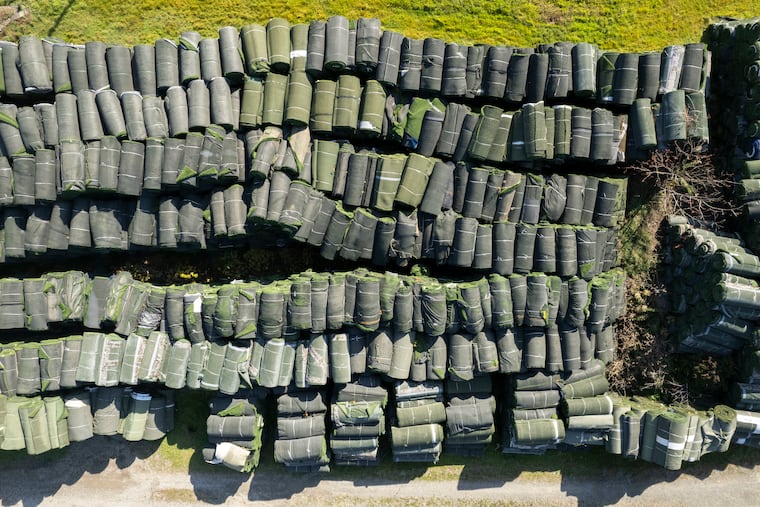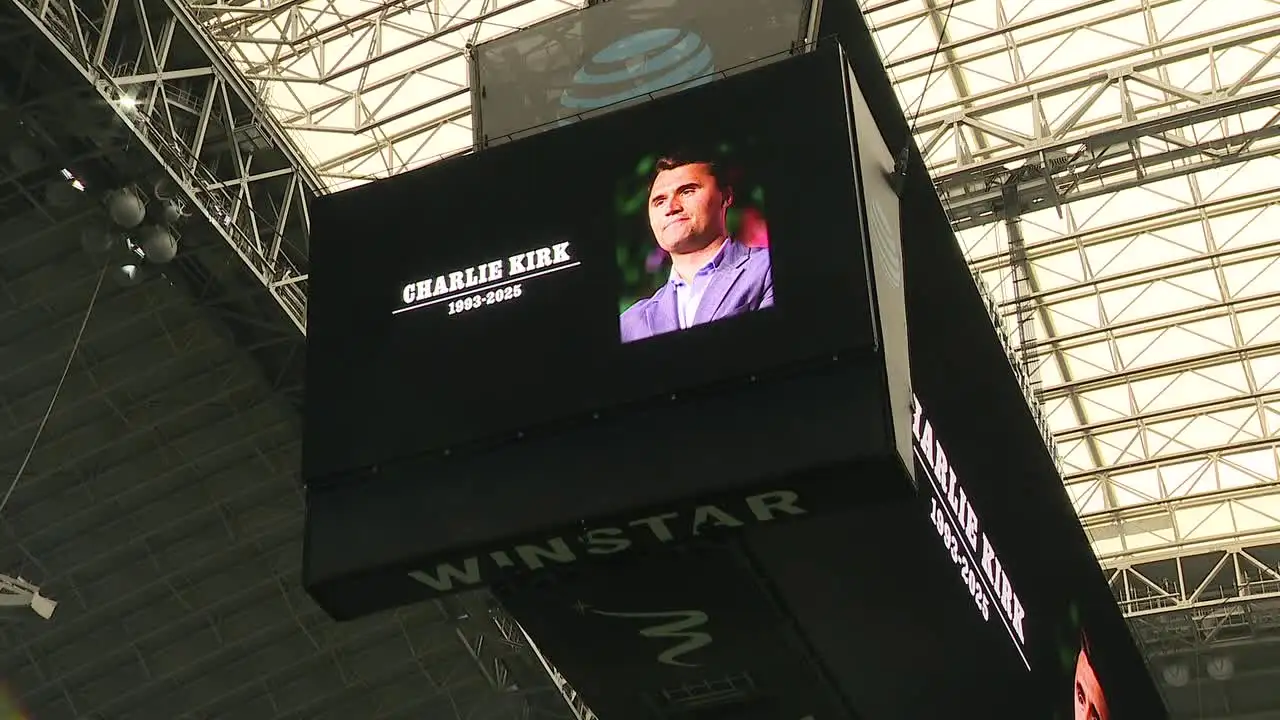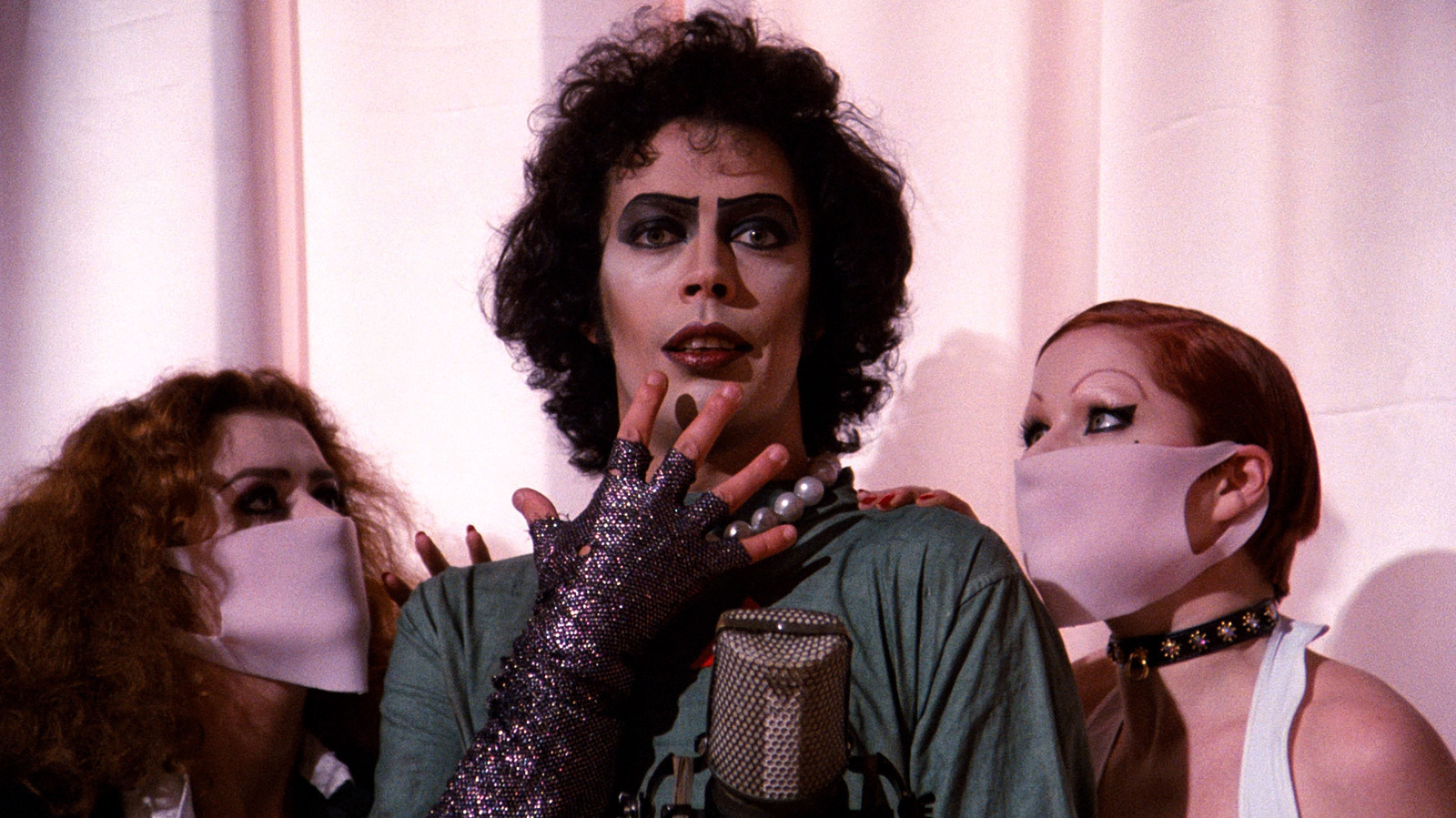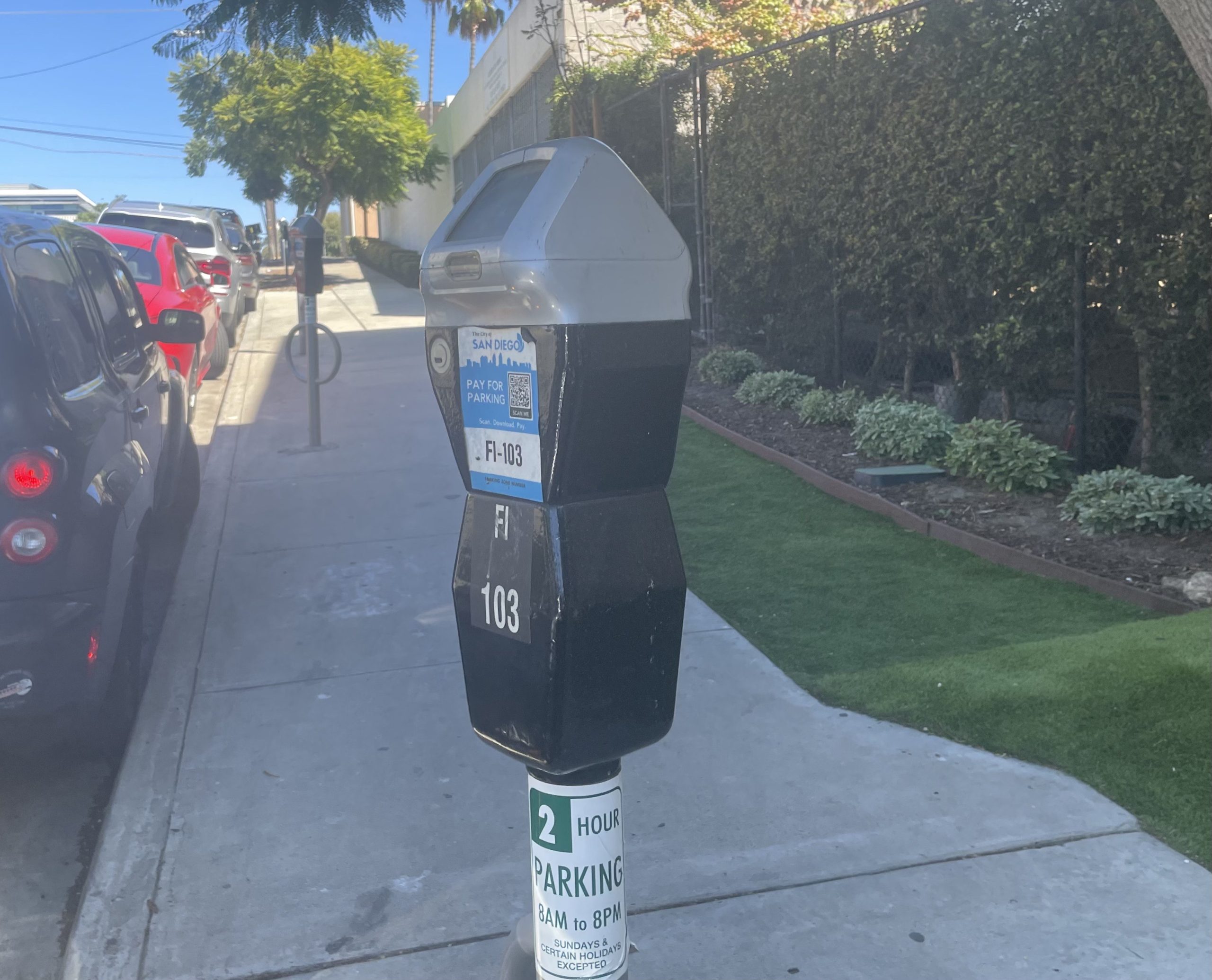
It was supposed to be Pennsylvania’s Green Dream.
Re-Match, a Denmark-based recycling company, had planned to open what it said would be the first artificial turf recycling facility in the United States — in a Schuylkill County factory by the end of 2024.
Environmentalists were overjoyed. Lab tests have shown that artificial turf has for decades contained PFAS, or per-and polyfluoroalkyl substances. The so-called forever chemicals — which are found in an array of products, including firefighting gear and nonstick cookware — don’t break down in the environment and have been linked by the EPA to cancer, asthma, thyroid disease, and decreased immunity to fight infections.
But Re-Match’s recycling dream will never be realized in Pennsylvania and as a result, tons of chemical-laden turf pose an ongoing environmental threat with no easy solution.
In June, the company filed for bankruptcy in the U.S. Bankruptcy Court for the District of Delaware, bringing to end a company whose arrival in Pennsylvania was once celebrated by top elected officials.
Re-Match had, in recent years, stored 11,000 tons of decaying turf rolls in three locations across the state, including a farm in Nicholson, Wyoming County, where nearly 6,000 tons of old turf sit on dirt fields. The turf, once meant to be recycled, now faces an uncertain future.
Environmental experts say that Re-Match’s abandoned rolls are emblematic of a larger problem. For years, municipalities and subcontractors have dumped old turf in warehouses, waterways, and wooded areas across the state. Neither the full amount nor the location of the discarded turf has been tracked by the state’s Department of Environmental Protection (DEP).
For the discarded turf that is on its radar, the agency must determine how and where to dispose of it.
“We’re all going to suffer because these turf fields — particularly the old ones, which we know have PFAS — are going to leech off and contaminate farmers’ fields, groundwater, drinking water supplies, and surface waters,” said Kyla Bennett, a former EPA official who is now science policy director for Public Employees for Environmental Responsibility (PEER).
She added that she’s not surprised that the Re-Match project in Pennsylvania failed.
“It’s cheaper for these artificial turf companies to just dispose of it another way,” Bennett said.
Former Re-Match executives declined to answer questions for this article.
Turf recycling is still largely a nascent industry, and in a 2021 investor prospectus Re-Match disclosed potential financial threats, from an inability to recycle 100% of the turf it collected, to possible environmental contamination that could have been caused by its recycling operations.
Another obstacle is the turf industry itself, according to Bennett and other environmental activists, who say that some turf companies are not committed to having their products recycled.
“The synthetic turf industry is in the business of selling artificial grass. They’re not interested in reducing plastic pollution, so whatever is going to be financially beneficial for them is what they’re going to do,” said Diana Carpinone, president and co-founder of Non Toxic Communities, a national nonprofit that supports local efforts to eliminate toxic chemicals.
Melanie Taylor, president and CEO of The Synthetic Turf Council, a national organization that represents manufacturers, builders, and infill material suppliers, rejected those claims. In an email to The Inquirer, she wrote that its “members are investing in innovative recycling and reuse solutions to reduce landfill reliance and advance a circular economy.”
She declined to comment on Re-Match, but noted that in Rockland, Mass., about 21 miles outside Boston, a company called Turf Recycling USA is successfully recycling old artificial fields.
The company has been in operation for just two months. Robert Delmonico, Turf Recycling’s president and CEO, told The Inquirer it has received about eight turf fields that it intends to recycle.
Machines separate the rubber and sand infill, clean and process it, and sell it to rubber or turf companies for future use. Other machines churn the green carpet into plastic pellets, which are then sold to plastic companies to make products like outdoor tables and chairs, benches and bins, he said.
“Re-Match made it very difficult for anyone attempting to recycle turf because they failed,” said Delmonico, who also serves as the president of R.A.D. Sports, which sells artificial and natural athletic fields. “You learn from other people’s mistakes.”
Asked if he was worried about PFAS making its way into another product, he said, “We’re not trying to solve the PFAS issues. We’re trying to prevent products from going to landfills.”
Re-Match’s outlook once seemed promising.
In 2021, Pennsylvania’s then-governor, Tom Wolf, announced that Re-Match offered a “sustainable solution” to the problem of old turf fields, which he said posed a “significant challenge to the environment.”
Re-Match planned to operate 24 factories in multiple countries by 2031. Its recycling procedures had been given a stamp of approval by an independent body, the European Union’s Environmental Technology Verification program.
Re-Match claimed that by recycling turf — instead of burning it — the Pennsylvania facility would spare the environment from 100,000 tons of carbon dioxide.
“I do think that Re-Match’s heart was in the right place and that they wanted to solve this problem,” Bennett said.
There are between 18,000 and 19,000 synthetic turf fields in the United States, with 1,200 — 1,500 new installations each year, and about half those are replacements, according to a recent EPA report.
While Re-Match waded through the process of obtaining necessary operating permits, the company signed agreements to pay thousands of dollars to Pennsylvania farmers, and at least one small business, to store hulking rows of old turf on their properties.
Those arrangements proved to be problematic.
At least two farmers claimed in court filings that Re-Match stopped paying them, and the DEP received complaints about the unsightly stacks.
In June 2018, Re-Match agreed to begin paying more than $96,000 a year to Benedict “Benny” Diaz, the owner of B.D. Hill Side Farm in Wyoming County, to store old turf on his land.
The company went on to deposit more than 400 tractor-trailer loads of turf on the farm before allegedly stopping payments in 2019, according to a federal lawsuit that Diaz later filed against Re-Match. Diaz claimed the company owed him nearly $300,000.
In November 2023, the case was settled, but the parties did not disclose the terms. Diaz died in July this year, and his son is consulting with a lawyer on how to rid the farmland of the remaining turf rolls.
“I have to figure it out with the DEP,” the son, Benny Diaz, said. “I don’t want it. I want it out of there, because it’s nothing but a nuisance and a headache for me.”
The DEP has categorized the old turf as “solid waste” that constitutes a “public nuisance,” and further determined that Re-Match violated state environmental laws by failing to obtain necessary permits for storing the turf.
When Re-Match filed for bankruptcy, it owed the state $19,500 in fines.
In a 2023 consent order with DEP, Re-Match agreed to establish a $644,000 bond in case it failed to remove or recycle the turf.
Re-Match has left 2,360 tons of turf at the factory it had rented in Tamaqua, Schuylkill County. Another 2,600 tons sit next to a concrete company in Jonestown, Lebanon County, and almost 6,000 tons are piled high on the Diaz farm in Nicholson.
“This bond remains in place and is expected to fully cover the cost of processing the remaining stock in the area,” said Dennis Andersen, former president of Re-Match.
But according to Re-Match’s bankruptcy filing, the Nicholson cleanup alone is estimated to cost $683,008.
The DEP is in the process of developing a cleanup plan for the Tamaqua site, said John Repetz, the agency’s regional communications manager. After that site is cleaned, the spokesperson said, “any remaining forfeited bond money will go toward cleaning up the other two sites.”
Artificial turf was pioneered and sold in the late 1960s by the Monsanto Chemical Co., as an affordable and effective way to provide children and professional athletes with durable, outdoor playing surfaces.
Once called the “Magic Carpet,” industry representatives tout how the turf saves money on water, doesn’t require pesticides, and reduces maintenance costs.
It wasn’t until 2019 that independent scientists discovered that the green carpets contained PFAS.
In March 2023, an Inquirer investigation, “Field of Dread,” found that AstroTurf that covered the field at Philadelphia’s Veterans Stadium in the late 1970s and early 1980s contained 16 different types of PFAS.
Six former Philadelphia Phillies who spent parts of their careers at the Vet between 1971 and 2003 have died from glioblastoma — about three times the average rate of this aggressive form of brain cancer among adult men in the U.S. (The Phillies have said that several brain cancer experts have told the organization that there is no evidence of a link between artificial turf and the disease.)
Some turf companies claim that they now produce PFAS-free turf products, but those promises have been disproved in some instances by independent scientists.
In recent years, when some schools and municipalities have debated the potential long-term costs of new turf fields, manufacturers have assured them that the products can be recycled. But that is another unproven claim said Bennett, the former EPA official.
“No one has been able to give us an address of a facility that is recycling these fields into a product,” Bennett said. “All we are told is that it exists with no evidence.”
Some bundles of used turf have found a second life in online marketplaces, where they’re sold and used to carpet batting cages, dog runs, backyards, miniature golf courses, and paint-ball fields.
Some community activists and environmentalists have tracked discarded turf.
The Inquirer found in 2023 that 15 trucks hauling 228 rolls arrived at a warehouse in Pottstown from Newtown, Mass., according to a chain of custody document.
That warehouse, operated by Allen Waterman, owner of APW Enterprises, recycles sand and crumb rubber from used turf fields.
The sand and rubber would be bagged and sold to the turf industry or other manufacturers, Waterman had told The Inquirer.
Waterman said he sends all the carpet to “partners,” who would extrude the carpet into new plastic lumber products. When a reporter asked him who the partners were, he replied: “None of your business.”
In Portsmouth, N.H., the Portsmouth School District paid a Massachusetts company $51,000 to remove 243 tons of field turf and have it recycled in July 2023.
But Carpinone, who lives in Dover, N.H., tracked the old turf to an abandoned warehouse in Franklin, N.J., with no signs of recycling equipment.
“The utilities had not even been turned on. They never moved in,” Carpinone said.
She found the turf listed for sale on Facebook Marketplace.
“Other people that have followed fields find that they haven’t been recycled either. I don’t think this is an isolated incident. I think this is business as usual for the synthetic turf industry,” she said.
Some recycling facilities, like the ExxonMobil plant in Baytown, Texas, process plastic waste by burning it.
“It’s a euphemism that the plastic and fossil fuel industry want people to think that it’s recycling, but it’s not,” Bennett said. “It’s all smoke and mirrors.”
But the promise of recycling is enough for these municipalities,” Bennett said.
“When the turf company goes into a town and says we’re going to recycle it, everybody believes it’s going to be recycled,” she said. “They believe they’re doing something good for the environment. They don’t question it. It’s very frustrating for all of us who know the truth.”



